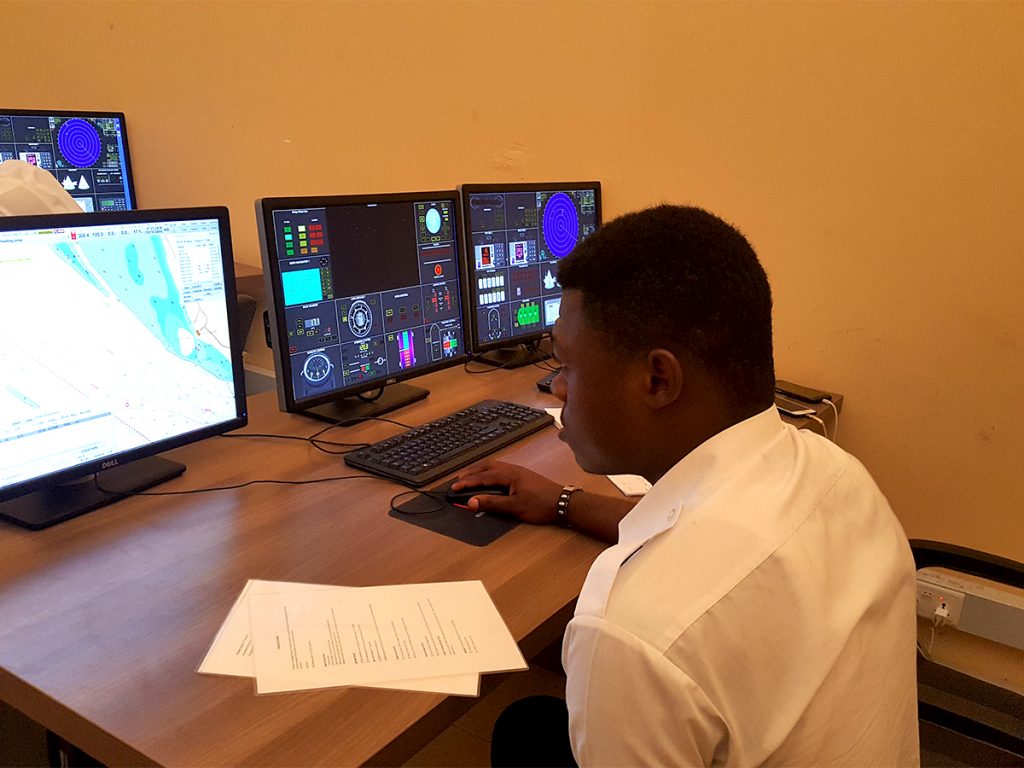The pressure within the shipping industry is growing. Well-trained seafarers are in short supply. BSM is taking new innovative approaches to counteract the shortage of skilled manpower.
The challenge is obvious. According to the latest Seafarer Workforce Report from international shipowners’ associations BIMCO and ICS, the world merchant fleet could be short of almost 90,000 officers by 2026. In the report, the two leading associations recommend that the industry significantly step up its training and recruiting efforts to counter the foreseeable shortage of skilled personnel. Already in 2021, the demand for qualified seafarers has clearly exceeded the supply.
“This development is not new to us,” confirms Eva Rodriguez, Director HR Marine at Bernhard Schulte Shipmanagement (BSM). “In addition to our traditional Cadet Programme, we have long since taken various measures to steadily expand our pool of qualified seafarers and thus ensure the safe and efficient operation of the growing fleet under BSM crew management.”
Cooperation With Educational Institutions Around the World
In October last year, BSM entered a cooperation with the Korea Institute of Maritime and Fisheries Technologies (KIMFT), a maritime education and research institute operated by the government of South Korea. The strategic collaboration marks the first step in recognition of the mutual interests in the field of seafarers’ entry to the global shipping market and aims to promote the career development and training of young Korean seafarers. Rodriguez is convinced, “Our partnership with KIMFT is in line with our aim to secure the most competent seafarers for a sustainable future. It will offer great opportunities to young Korean officers within our highly diversified fleet.”
This close cooperation is just one component in BSM’s commitment to expand the source markets of highly qualified BSM seafarers of the future. “BSM is intensely aware that global maritime education requirements are rapidly changing along with the technological and digital advancement. Therefore, we are increasing our efforts to develop long-term collaborations, enhancing cooperation between universities and the industry to maximise our impact as a driver of change and innovation. BSM’s overall aspiration is to improve the attractiveness of the seafaring profession and bridge the gap between the skill demand and skill offer”, says Rodriguez.
Expansion of the Source Markets to new Seafaring Nations
This aim requires staying power, as another initiative, the BSM African Seafarers Programme, shows. The industry cannot expect to find the seafarers of tomorrow within the traditional seafaring nations as their working-age population is expected to shrink in the coming years, and so BSM is looking elsewhere for its future seafarers.
Further, the industry is challenged by perceptions of it being unsafe, with unattractive on-board life, poor working conditions at sea, limited career opportunities and disrupted family life. Covid-19 and the crew-change crisis shone a spotlight on life onboard resulting in much of the future talent seeking careers within other industries.
In order to meet current and future market needs, BSM started already in 2012 to invest in the training of African seafarers, by establishing a local representative office and a cadet programme in Ghana in collaboration with the Regional Maritime University. Rodriguez says: “We did that to offer combined shore and sea-based training and thus present future career opportunities and development possibilities to this younger African generation representing around 60% of the African population. Since 2012, more than 1500 seafarers have graduated from the university.” Today the programme employs 470 seafarers, mostly from Ghana, but also from Nigeria, Cameroon, Gambia and Sierra Leone, and we expect to increase our intake of new talent to 1,000 by 2025.
With its diverse recruitment and training measures, BSM not only supports its own business development, but also the business success of its customers. At the same time, a contribution is made to the future of the entire maritime industry. It is not enough to know and complain about the challenges. Solutions must be developed and followed up with action.











